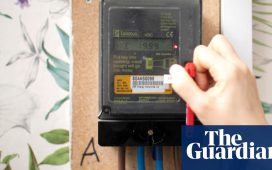
This will take the total installed capacity of the country for crude refining capacity to 295 MT by 2030, as per the rating agency.
This expansion will be driven by the projected growth in domestic oil consumption as India’s existing refining capacity is already operating at optimal levels of 100-103 per cent utilisation.
The expansion will require a capital expenditure of approximately Rs 1.9-2.2 lakh crore, with most of the capacity additions being brownfield expansions, as per the rating agency.It further added that these investments are expected to carry low project risk, and steady returns from the refining business will help strengthen the credit profiles of OMCs.
Over the past decade, India has seen a capacity increase of 42 MT, reaching 257 MT in fiscal 2024.
This was primarily in response to growing domestic demand, as exports remained steady at 60-65 MT per year during this period.
Domestic consumption of petroleum products grew at a compound annual growth rate (CAGR) of 4 per cent over the past decade.Anuj Sethi, Senior Director, CRISIL Ratings, said, “We expect overall petroleum product consumption to
slightly moderate and register 3 per cent CAGR over the next six years, primarily due to slower growth of 2-3 per cent in
transport fuel consumption. This will be caused by improving fuel economy, rising share of vehicle sales with alternative cleaner fuels, and 20 per cent ethanol blending target proposed by the Government of India.”
Transport fuels, which make up about 56 per cent of total consumption, have seen a similar growth rate of 4 per cent, while naphtha (a flammable, straw-colored to colorless liquid hydrocarbon mixture) accounting for 7 per cent of consumption, grew by 2 per cent.
Other products, such as liquefied petroleum gas (LPG) and bitumen, collectively saw growth close to 4 per cent.
Going further, the diesel consumption in the country is expected to grow at a more moderate pace of 2-2.5 per cent CAGR over the next six years.
The rating agency stated that the shift towards electric vehicles (EVs) and natural gas-powered buses will reduce the demand for diesel, as electrification efforts in the commercial vehicle sector gain traction.
Petrol consumption which is driven mainly by two-wheeler is also expected to face downward pressure, as per the Crisil Ratings.
Electric two-wheeler sales are projected to reach 12-15 per cent of the market share by fiscal 2030, up from negligible levels today, as per the rating agency. Similarly, compressed natural gas (CNG) passenger vehicles are expected to capture 17-19 per cent of the market by 2030.
In addition, it added that India’s target to achieve 20 per cent ethanol blending with petrol by 2026 will further curb petrol demand.
On the other hand, naphtha demand is expected to see a robust CAGR of 6-7 per cent, supported by increased demand from planned petrochemical capacity additions in India, the rating agency stated.
This growth in overall consumption will necessitate a 35-40 MT increase in refining capacity as the current capacities
are already operating at the optimum utilisation level of ~100-103 per cent.
Joanne Gonsalves, Associate Director, CRISIL Ratings said, “Most of the capacity addition would be brownfield expansions to cater to demand for end products, thus lowering the project risks. We have also seen the oil refiners balancing out their operating profits amid volatility seen in oil prices, wherein USD 9-11 per barrel of rolling average returns were earned between fiscals 2016-2024, recording a return on investments of 12-14 per cent. Further, the sector benefits from its strategic importance to the government”.
The strategic focus on brownfield expansion will mitigate risks and allow the OMCs to adapt more swiftly to the changing energy landscape, the rating agency added.









